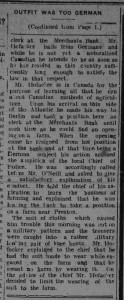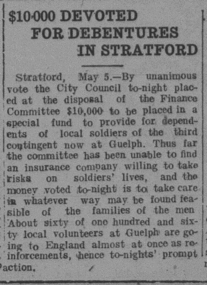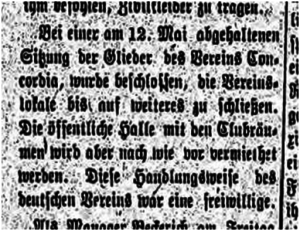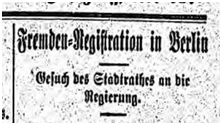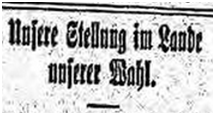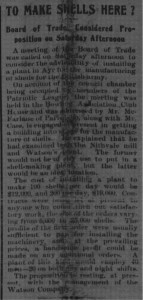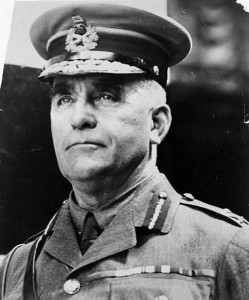Prisoners of war were able to receive mail parcels not exceeding eleven pounds and to the knowledge of the Post Office Department in Ottawa, there was no restrictions on parcel content and tobacco could be sent duty-free. Instructions on how to communicate with a Canadian prisoner were given to Canadian citizens from the Post Office Department through newspapers. These instructions claimed that content within letters should only contain local and family news and business information if needed. There would be no paid postage, letters were to be left open, and any mention of military, naval, or political information would cause the package not to be delivered. Letters were also to never be placed within a parcel and no newspapers, under any circumstances, were to be sent. While it was preferable to send postcards, if a letter was being sent, it should not exceed two sides of a piece of note paper. Money could be sent as well; while sending actual bills was not recommended, an arrangement could be made with the post master for a remittance. Finally, there was no guarantee of delivery to or from a Canadian prisoner of war.
Letters were to be addressed as:
Rank, initials, name
Regiment or Unit
Canadian Prisoner of War
Place of Internment
Germany
“May write to War Prisoners,” Berlin Daily Telegraph, May 19, 1915.
“Re Correspondence for Prisoners of War in Germany,” Elmira Signet, June 3, 1915.
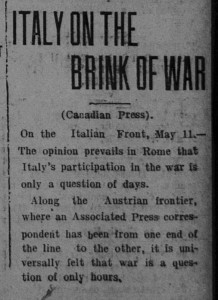 Throughout May it became clear that Italy would soon be joining the war. Until late May 1915, Italy had been neutral, but it gradually became clear that Italy could not avoid the war. By early May, the citizens in Rome knew it was only a matter of days until they either declared war or had war declared against them.
Throughout May it became clear that Italy would soon be joining the war. Until late May 1915, Italy had been neutral, but it gradually became clear that Italy could not avoid the war. By early May, the citizens in Rome knew it was only a matter of days until they either declared war or had war declared against them.